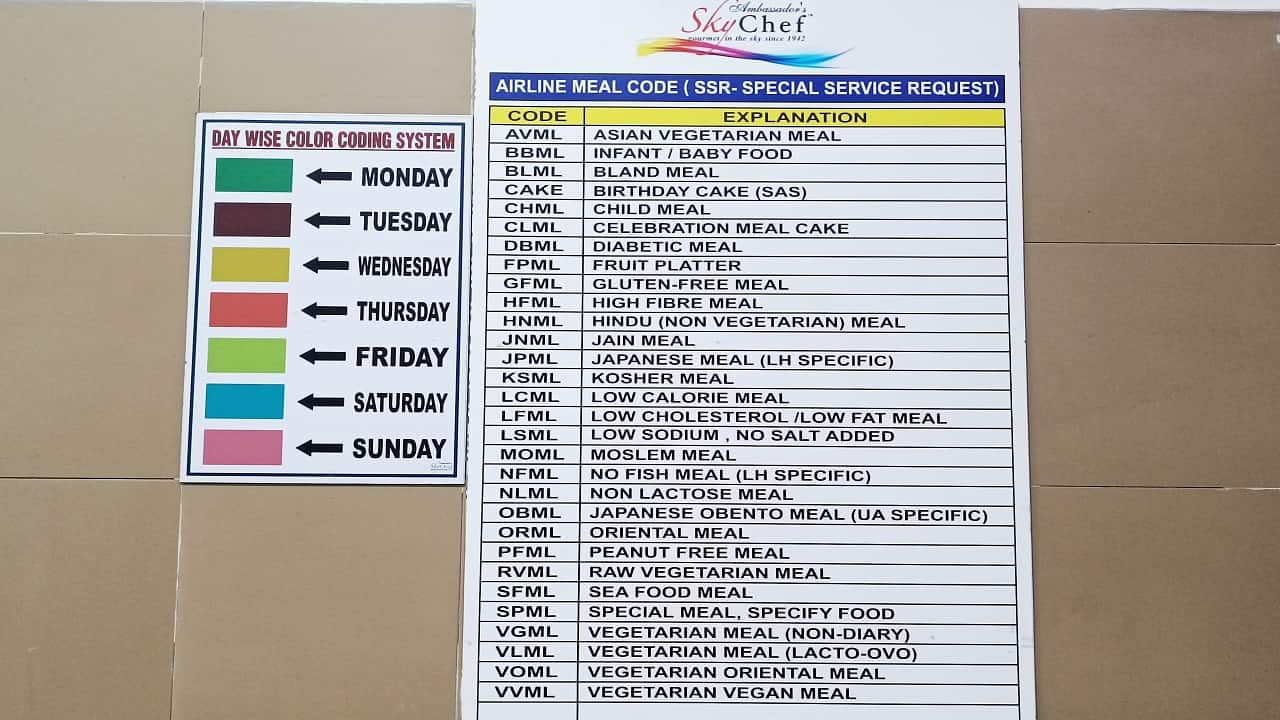“We focus to serve Indian ‘Ghar ka Khana’ in the flight with some unique fusion culinary touch, elevating the in-flight dining experience of Air India passenger,” candidly mentioned Chef Abhijeet, the executive Chef of Air India during a conversation at the Ambassador’s Sky Chef in Delhi. The airline, under its new ownership of Tata Group, is slowly, but steadily finding its new identity, announcing new initiatives every now and then. Once called the ‘Maharaja’, the former national airline saw its worst phase during the government ownership.
Guess that’s when the new regime under the Prime Minister Narendra Modi decided to sell it to a private ownership, while maintaining the pride associated with the airline. After all, Air India still represents India on a global map, covering almost 40 destinations abroad. But a new ownership means new challenges and new communication. Tata Group was quick to understand the primordial issues with the airline and sent out a message to the world that soon we will see a new Air India.
Following the same, a massive deal of 840 aircrafts (470 firm + 370 options) was announced. But that’s just a small part of the Air India’s revival. The brand is working on a 360-degrees transformation and most of it has to do with the in-flight dining experience. Air India is a full-service air carrier, and a major chunk of its flying experience comes from the food the airline serves.
It has been a pain (so to say) for the airline for the longest of the time and a recent tweet by a celebrity chef further opened the wounds of the Air India travellers. Nevertheless, the airline is adamant to revamp its outlook and following the same, the airline announced an all-new in-flight menu for domestic flights in October 2022. Then in April 2023, the new menu was expanded to its international flights as well.
Recently, a select bunch of journalists were invited to visit the Ambassador’s Sky Chef facility in Aerocity, Delhi. The facility provides in-flight meal to thousands of Air India passengers travelling out of the Delhi’s Indira Gandhi International Airport. The idea was to see the new menu of Air India, and witness the journey of the meal from the flight kitchen to the food tray.
Ambassador’s Sky Chef
The Ambassador’s Sky Chef is one of the oldest and biggest catering partners of Air India. Established in 1942, the company is credited to start the in-flight dining, at least in India. The Delhi facility was started in 1980s and now serve more than 35 airlines, among which are 25 international and 10 domestic airlines. Air India being one of the largest contributors to the airline’s business, gets a dedicated food preparation and packaging area inside the facility.
The unit runs as a proper production facility and adheres to all international safety guidelines when it comes to preparation of the food. One of the senior executives of the company says they have only 0.05 percent production error. Having said that, Foreign Object on Board (FOB) remains the biggest problem for aviation in-flight dining. Though, he quips, most of the FOB doesn’t originate from this facility.
The facility has served almost all the Presidents and Prime Ministers of this country, on a foreign trip, and has also served the Russian PM Vladimir Putin, on his India trip. We were shown around various wings of the facility, right from the area where raw ingredients are unloaded, checked for freshness & quality, and sorted into colour-coded baskets to the various kitchens where food is made.
The main kitchen is divided into sections: Hot Kitchen/Cold Kitchen/Bakery/ Confectionery etc. and different dishes are cooked in these sections according to the cuisine, (Western, Asian, Indian etc). Visiting a facility like this makes you realize the scale of operations that goes behind a single serving of food tray you get on your flight.

Air India’s New Menu
Coming to the Menu upgrade on the Air India flight, starting 01 October 2022, Air India unveiled new menus for all domestic flights. Then from 01 April 2023, Air India introduced refreshed inflight food & beverage menus across cabins on all international flights (ex-India).
Domestic Flight Menu
The meal choices now feature a mix of international and modern Indian dishes with both vegetarian and non-vegetarian options on offer. The menu changes as per time of day (breakfast/lunch/refreshment/dinner). The menu cycles change every other day to avoid monotony for frequently returning guests.
You get options like Croissants, Dark Chocolate Oatmeal Muffins, Cheese and Truffle Oil Scrambled Eggs with Chives, Cheese Mushroom Omelette, Mustard Cream-coated Chicken Sausage, Dry Jeera Aloo Wedges, etc. or dishes such as Aloo Parantha, Medu Vada and Podi Idly for breakfast.
For Lunch, options include Fish Curry, Chicken Chettinad, Potato Podimas, Chicken 65, Vegetable Pulao, Grilled Sliced Pesto Chicken Sandwich, Mumbai Batata Wada, Vegetable Fried Noodles, Chilli Chicken, etc are served.
International Flight Menu
The Air India guests will be offered a new menu for breakfast, lunch, and dinner, across all cabin classes, featuring a mix of fusion dishes such as Mushroom Scrambled Egg, Turmeric Chilli Omelette, Mixed Vegetable Paratha, Achari Paneer and Emmenthal Sandwich in Multigrain Bread, Grilled Prawns in a Fennel Cream Sauce, Murgh Rezala Kofta, Murgh Elaichi Korma, Classic Chilli Chicken, Chicken Chettinad Kathi Roll, Baked Fillet of Fish with a Herb Almond and Garlic Crust, among others.
Air India guests will also be offered a bouquet of dessert offerings such as Mango Passionfruit Delight, Quinoa Orange Kheer, Espresso Almond Crumble Mousse Cake, Khajur Tukda with Kesar Phirni, Single Origin Chocolate Slice, Chum-Chum Sandwich with Blueberry Sauce, and a seasonal fruit selection.
For passengers who follow the vegan lifestyle, they will be able to choose from a selection of plant-based meal options such as Subz Seekh Kebab, Thai Red Curry with Tofu and Vegetables, Broccoli and Millet Steak, and Lemon Sevaiyan Upma, Medu Wada and Masala Uttapam.

In-flight Dining Experience
Air India’s Head Chef Abhijit, says that the new menu has been designed not only to revamp the menu as part of ownership change, but also honours the produce that can be sourced due to seasonal change from winter to summer. When asked on the process of designing a menu for a brand like Air India, Chef Abhijit says he believes in promoting the Indian cuisine on a global map and the new menu is an ode to our regional cuisine.
Having said that, he believes offering “Ghar Ka Khana” inspired food adds a level of comfort to the journey of air passengers and the scope of experimentation should be limited. Since the taste also changes 36,000 ft above the sea level as the salt and sugar dips due to the pressure, it’s best to stick to the basics. He further said, “after all, you can’t change menu in the air and it’s a challenge to make everyone happy but the same food items.”
In terms of the plating, Chef says he focused on putting as many colours on the plate as possible, to make the trays look attractive and eating-worthy. The menu cards now mention the nutritional values of each of the dishes, while the meal portions are now lighter. Also, less use of spices is preferred for a happy stomach of passengers.
Closing Remarks
My recent visit to the Ambassador’s Sky Chef in Delhi to witness the revamped Air India in-flight menu was an eye-opener in many ways and no amount of words can describe the experience of visiting a mega kitchen as big as the Sky Chef’s. Next time you are on-board a flight, eating a hot meal served to you at 36,000 ft, remember the hard work one has put to bring you food from production facility to the airplane, maintaining the hygiene and the quality.












